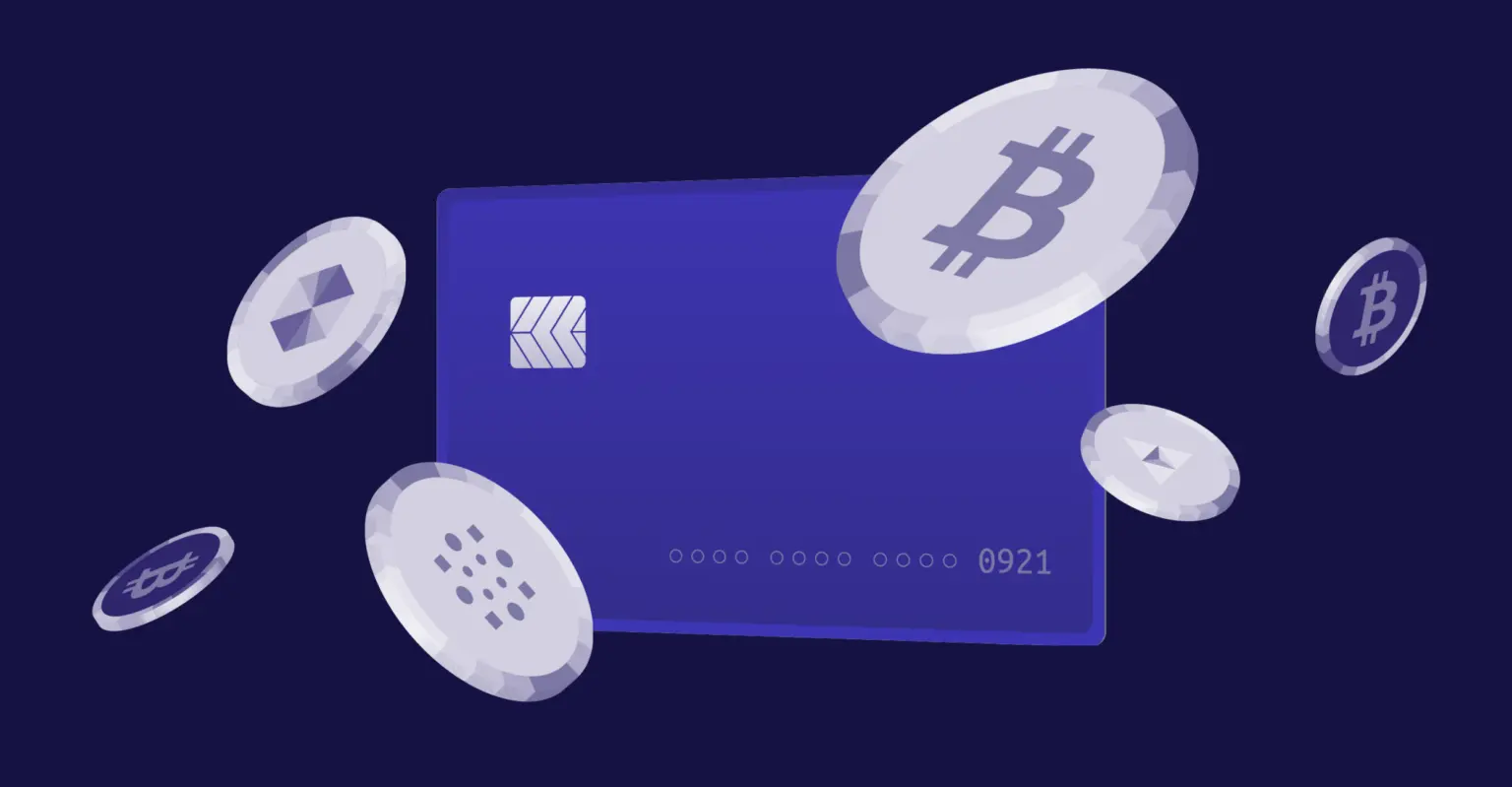Are Crypto Presales Worth It? Risk Analysis & Due Diligence Guide

Crypto presales can offer high returns but carry significant risks including project failure, liquidity issues, and regulatory concerns. Success requires thorough due diligence and risk management.
You've seen the headlines about people making 1000x returns from getting into crypto projects early. Your friend keeps talking about this "amazing presale opportunity" that's guaranteed to make everyone rich. The FOMO is real.
Here's what those success stories don't tell you: for every presale that creates millionaires, hundreds fail completely and investors lose everything. The crypto graveyard is filled with projects that promised revolutionary technology and delivered nothing but worthless tokens.
Presale investing isn't about finding guaranteed winners - it's about managing risk while positioning for potential upside. Most presale investors lose money because they treat early-stage investments like lottery tickets instead of applying systematic analysis.
The investors who consistently profit from presales use rigorous due diligence processes. They understand how to research crypto projects, analyze fundamentals, and size positions appropriately for extreme risk investments.
After learning about cryptocurrency exchange examples and understanding market dynamics, the next question becomes whether early-stage investing through presales makes sense for your portfolio.
The answer depends on your risk tolerance, investment experience, and ability to conduct proper due diligence.
Understanding Crypto Presales in 2025
The presale landscape has evolved significantly since the ICO boom of 2017. Understanding current structures and regulations helps you evaluate opportunities properly.
Presale vs ICO vs IDO Differences
Presales happen before public token launches, typically offering early access to projects at discounted prices. These are usually private rounds for investors who meet certain criteria.
Initial Coin Offerings (ICOs) were popular in 2017-2018 but declined due to regulatory crackdowns. Most ICOs were poorly structured and many turned out to be scams.
Initial DEX Offerings (IDOs) launch tokens directly on decentralized exchanges, providing immediate liquidity but often with high volatility and limited vetting.
Key Differences:
- Presales: Private, early-stage, often with vesting schedules
- ICOs: Public offerings, heavily regulated in most jurisdictions
- IDOs: Decentralized launches with immediate trading
Modern presales often include vesting schedules, governance rights, and utility requirements that didn't exist in early ICO structures.
Current Regulatory Landscape
Crypto presale regulations vary significantly by jurisdiction and continue evolving rapidly.
United States: Most presales are restricted to accredited investors under securities laws. Public offerings require extensive compliance or exemptions.
European Union: MiCA regulations provide clearer frameworks but impose strict requirements on token issuers and platforms.
Asia: Different countries have varying approaches, from outright bans to regulatory sandboxes for innovation.
Compliance Requirements:
- KYC/AML procedures for participants
- Accredited investor verification
- Legal opinions on token classification
- Regulatory filings where required
Non-compliant presales face enforcement actions that can render tokens worthless or illiquid.
Potential Benefits of Presale Participation
Understanding potential upside helps evaluate whether presale risks are justified for your investment goals.
Early Access to Innovation
Presales often provide access to genuinely innovative projects before they become widely known. Early participants can benefit from:
Technology Advantages: Projects solving real problems with novel approaches often reward early supporters significantly.
Network Effects: Being part of a project's early community can provide ongoing opportunities and access to future developments.
Team Access: Early investors often get direct communication with founding teams and influence over project direction.
Market Positioning: Early token holders may benefit from governance rights, fee sharing, or other utility mechanisms.
Discounted Token Prices
Presale participants typically receive tokens at substantial discounts to expected public launch prices.
Typical Discount Ranges:
- Seed rounds: 70-90% discount to public price expectations
- Private rounds: 40-70% discount
- Public presales: 20-50% discount
These discounts compensate for liquidity risk, longer holding periods, and higher failure probability.
Vesting Schedules: Most presales include vesting that releases tokens over time, preventing immediate dumps but requiring long-term commitment.
Community Building Opportunities
Early participation often includes community benefits beyond just token appreciation:
Governance Rights: Many projects give early holders voting power on important decisions
Beta Access: First access to new features and products
Networking: Connection with other early adopters and potential business partners
Learning: Direct involvement in project development and crypto innovation
These benefits can be valuable even if token prices don't perform as expected.
Major Risks and Downsides
Presale investing carries extreme risks that can result in total loss of invested capital.
Project Failure and Total Loss
The majority of crypto projects fail completely within 2-3 years of launching. Common failure modes include:
Technical Failures: Projects that can't deliver promised technology or face insurmountable technical challenges.
Market Rejection: Products that don't find product-market fit or face better competition.
Team Issues: Founder conflicts, key departures, or incompetence in execution.
Funding Problems: Running out of money before achieving sustainability or additional funding.
Regulatory Shutdown: Projects that violate securities laws or face government enforcement.
Liquidity and Lock-up Periods
Presale tokens often have limited liquidity for extended periods:
Vesting Schedules: Tokens may be locked for 6-24 months with gradual release over time.
Market Development: Even after vesting, tokens may trade on limited exchanges with poor liquidity.
Price Volatility: Low liquidity creates extreme price swings that can persist for months.
Exit Difficulty: Large positions may be impossible to sell without significant price impact.
These liquidity constraints mean presale investments should be considered illiquid for 1-3 years minimum.
Regulatory and Legal Risks
Changing regulations can severely impact presale investments:
Securities Classification: Tokens deemed securities may face trading restrictions or compliance requirements.
Exchange Delistings: Regulatory pressure can force exchanges to remove tokens, destroying liquidity.
Geographic Restrictions: Tokens may become unavailable in certain jurisdictions.
Tax Implications: Unclear tax treatment can create unexpected liabilities.
Legal Recourse: Limited legal protections if projects fail or commit fraud.
Market Volatility Impact
Crypto markets are extremely volatile, and presale tokens often experience amplified price swings:
Bear Market Impact: Projects launching during market downturns often struggle regardless of fundamentals.
Correlation Risk: All crypto assets tend to move together during extreme market events.
Sentiment Changes: Market sentiment can shift rapidly, affecting all projects simultaneously.
Liquidity Evaporation: During stress periods, buyers disappear and selling becomes nearly impossible.
Due Diligence Framework for Presales
Systematic analysis helps identify legitimate opportunities while avoiding obvious scams and weak projects.
Team and Advisory Analysis
Founder Backgrounds: Research previous projects, successes, failures, and relevant experience. Anonymous teams require extra scrutiny.
Technical Expertise: Evaluate whether the team has skills necessary to execute their technical vision.
Advisory Quality: Strong advisors with relevant experience and networks can significantly improve project prospects.
Team Transparency: Regular communication, public profiles, and willingness to engage with community.
Red Flags: Anonymous founders, unrealistic resumes, or teams with histories of failed projects.
Technology and Innovation Assessment
Problem Definition: Does the project solve a real problem with a large addressable market?
Technical Approach: Is the proposed solution technically feasible and innovative?
Competitive Analysis: How does the project differentiate from existing solutions?
Development Progress: What has been built and demonstrated beyond whitepapers?
Open Source: Is code available for review and audit by security experts?
Tokenomics and Distribution Review
Token Utility: How are tokens used within the project ecosystem? Utility should drive demand.
Supply Schedule: Understand total supply, inflation rates, and token release schedules.
Distribution Fairness: What percentage goes to team, advisors, early investors, and community?
Governance Rights: Do tokens provide voting power or revenue sharing?
Economic Model: How does the project generate revenue and share value with token holders?
Market Opportunity Evaluation
Market Size: Is the total addressable market large enough to support significant token appreciation?
Timing: Is the market ready for this solution or is it too early/late?
Adoption Path: How will the project acquire users and achieve network effects?
Business Model: Can the project generate sustainable revenue to support token value?
Partnerships: Are there strategic relationships that accelerate adoption?
Red Flags to Avoid
Learning to identify scams and weak projects prevents most presale losses.
Common Scam Indicators
Anonymous Teams: While some legitimate projects have anonymous founders, it's a significant risk factor that requires extra verification.
Unrealistic Technology Claims: Projects promising to solve impossible problems or claiming revolutionary breakthroughs without proof.
Aggressive Marketing: Heavy promotion through paid influencers, spam, and high-pressure sales tactics often indicate projects with weak fundamentals.
Guaranteed Returns: Any project promising specific returns or "risk-free" investments is likely a scam.
Poor Documentation: Vague whitepapers, no technical specifications, or missing important details about tokenomics.
Unrealistic Promises
Overly Ambitious Timelines: Projects claiming to build complex technology in unrealistically short timeframes.
Market Domination Claims: Statements about capturing entire markets without acknowledging competition or challenges.
Partnership Exaggeration: Claiming partnerships that are actually just informal discussions or one-way integrations.
Technology Overselling: Claiming to have solved problems that have stumped teams of experts for years.
Regulatory Certainty: Projects claiming their tokens definitely aren't securities or will avoid regulatory issues.
Risk Management Strategies
Proper risk management can help you participate in presales without risking financial ruin.
Position Sizing Guidelines
Total Allocation: Limit presale investments to 5-10% of your total crypto portfolio, which should itself be 5-15% of total investments.
Individual Projects: Never invest more than 1-2% of your total portfolio in any single presale.
Correlation Risk: Don't invest in multiple presales from the same sector or with similar risk profiles.
Liquidity Needs: Only invest money you won't need for 2-3 years minimum.
Emotional Limits: Invest amounts small enough that total loss won't affect your lifestyle or sleep.
Diversification Principles
Project Diversification: Spread investments across 5-10 different presales rather than concentrating in one or two.
Sector Diversification: Invest across different crypto sectors (DeFi, gaming, infrastructure) to reduce correlation.
Stage Diversification: Mix earlier and later-stage investments with different risk-return profiles.
Geographic Diversification: Consider projects from different jurisdictions to reduce regulatory risk.
Time Diversification: Spread investments over time rather than putting everything into presales during one period.
Alternative Early-Stage Investment Options
Presales aren't the only way to access early-stage crypto opportunities.
Public Token Launches: Participating in IDOs or public launches often provides similar upside with better liquidity.
DeFi Protocols: Early users of new DeFi protocols often receive retroactive token distributions.
Venture Capital Funds: Crypto VC funds provide professional management and diversification for accredited investors.
Equity Investment: Some projects offer equity rather than tokens, providing different risk-return characteristics.
NFT Projects: Early participation in NFT communities sometimes provides token access or other benefits.
Mining/Staking: Early participation in new proof-of-stake networks through validation.
These alternatives may offer better risk-adjusted returns than direct presale participation.
Legal and Tax Considerations
Presale participation creates complex legal and tax obligations that vary by jurisdiction.
Securities Laws: Many presale tokens are considered securities, creating restrictions on trading and potential compliance requirements.
Tax Treatment: Presale purchases may be taxable events, with additional taxes due when tokens vest or are sold.
Record Keeping: Detailed records of purchase prices, vesting schedules, and fair market values are essential for tax compliance.
Professional Advice: Consult with crypto-experienced attorneys and accountants before making significant presale investments.
Jurisdiction Shopping: Some investors use offshore structures to manage tax and regulatory obligations, though this requires professional guidance.
Ready to learn professional approaches to early-stage crypto investing? Decentralized Masters teaches the proven ABN System for evaluating opportunities and managing risk in crypto markets. Discover why understanding DeFi alternatives to traditional banking often provides better risk-adjusted returns than speculative presale investments.
Frequently Asked Questions
What happens if a presale project fails?
In most cases, you lose your entire investment. Unlike traditional investments, there's rarely any recovery value from failed crypto projects.
Should beginners invest in presales?
No, presales require advanced knowledge of crypto markets, technology evaluation, and risk management. Beginners should start with established cryptocurrencies.
What's the minimum investment for presales?
Minimums vary from $100 for public presales to $10,000+ for private rounds, though smaller amounts are generally less risky for individual investors.
How do I find legitimate presales?
Research teams thoroughly, verify partnerships and claims, check regulatory compliance, and be extremely skeptical of marketing hype.
Are presales legal?
Legality depends on jurisdiction and token structure. Many presales are restricted to accredited investors under securities laws.
Can I sell presale tokens immediately?
Most presales include vesting schedules that lock tokens for 6-24 months, and even after vesting, liquidity may be limited.
How much money should I invest in presales?
Most advisors recommend limiting presale investments to 1-5% of your total investment portfolio due to the high failure rate.
What percentage of crypto presales succeed?
Most estimates suggest 80-90% of crypto projects fail completely within 2-3 years, making presales extremely high-risk investments.




